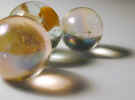


Fellows of the Society of Holistic Therapists & Coaches
www.societytherapistscoaches.co.uk

About
Us:
Insured
Professionally
Registered
Qualified
to
real standards
Adhering
to
NOS
Dedicated
to
Ongoing development
Adhering
to
codes of ethics
Involved
in
training provision
Therapists
with Supervision access
First
established 1993
|
Welcome
to Scotland's Premier Therapy and Holistic Personal
Development Site
'Therapeutic care
& Personal Development - The solution to your problems is in
you'
 Bi-Polar
and Mood Disorder management
in Edinburgh and Glasgow Bi-Polar
and Mood Disorder management
in Edinburgh and Glasgow
There are a range of
different conditions often referred to as mood disorders or forms of
Bi-Polar. These issues are a major specialty of the senior practitioner
(Stuart), who has also authored a number of professional practitioner
training courses in this and related subjects.
(Different people use the spellings Bipolar, Bi-Polar or Bi Polar. We
deliberately use all of them on this webpage for the benefit of search
engines.)
Depending on whether the USA or UK definitions are used, the type of
mood disorder or Bi-Polar depression you are diagnosed with can vary,
since the medical professions in each country tend to have differing
ideas about exact diagnosis. In the USA for example most forms of mood
disorder tend to be classified as forms of Bi-Polar, and you will
either end up with a specific diagnosis of Bipolar I or II, or be
classified as rapid cycling, Cyclothymic or "Non-Specific" Bi-Polar.
In the UK the terms Bi-Polar I and II are common, but other
forms are often instead classified as non-specific "Mood disorders"
rather than specifically a type of Bi-Polar. This distinction is
important for sufferers to understand since much of the self-help
information in books and on the Internet originates in the USA, and
thus uses their terminology.
What
is Borderline Personality Disorder
A further distinction is between a mood disorder of the Bi-Polar type
which is considered to be clinical and a medical condition that frankly
you are born with, or Borderline Personality Disorder (BPD), which is a
condition that builds over time as a result of life events.
BPD is certainly not something people choose to have, or have
developed through any fault of their own, rather it occurs as a result
of people going through various experiences in life that create an
unusual development.
In the UK you tend to have a diagnosis or EITHER a Bi-Polar related
condition OR BPD. In the USA there is a greater acknowledgment that
often people have BOTH. This may occur for example where a person is
"born with Bi-Polar" and thus has an unusual development, creating
elements of BPD as well. It can also be argued that a person can
develop BPD and then hereditary Bi-Polar can kick in at a danger time,
e.g. middle age on top of this.
When
Does Bi Polar occur?
There are classic "danger times" for Bi-Polar to show itself. Often
until these times the person may be perceived as "moody" or prone to
"bursts of energy", but otherwise seem quite normal. They may also
suffer from periods of depression over time. These may not
however appear to be strong or serious enough to warrant deeper
investigation. Then at a particular time of life, the symptoms hit them
hard, revealing full blown Bi-polar. The lucky ones get help quickly,
the unlucky ones try to fight the condition, seeing the symptoms as
merely what they have faced all their lives, just "really bad at the
moment". Unfortunately often Bi-Polar asserts itself very
dramatically, resulting in the sufferer ending up in a police cell for
inappropriate behaviour (caused by mania) or in hospital (caused by
severe depression). It may also be seen via "dual diagnosis", most
commonly where the person presents as having alcoholism, and also has
the underlying condition of Bi-Polar.
Classic times for the full onset of Bi-Polar are age 5 (according to
USA early bi-polar studies, less recognised in UK), Age 18, Age 30
(most common) and retirement age. Each of these also tends to be at a
time of major life significance, and it is unknown whether the onset is
due to lifestyle or biological factors. These are also approximate ages.
How
often do mood swings occur?
There is also a common misunderstanding that Bi Polar means that you
have one or two major swings per year and are stuck in one or other
state for the rest of the time. In BiPolar I and II there is indeed a
tendency to remain for long periods in one state, and to have one or
more swing per year. However there are a large number of sufferer who
do NOT have this pattern. For example:
- Cyclothymic sufferers: often nick-named "Bi-Polar Lite", the changes
are less severe but more frequent.
- Rapid cycling Bi-Polar: more acknowledged in the USA than in the UK,
the changes are very rapid, often in weeks or days, in very rare cases
in the course of a day.
- Where more than one condition exists, e.g. where BPD and Bi-Polar are
both present and different mood state patterns co-exist
- Where hormonal influences such as the menstrual cycle influence mood
state
- Where self medication with prescription or non-prescription drugs,
recreational substances, lifestyle habits and other environmental
factors add yet more variables.
- Where inappropriate medication has been prescribed, perhaps because
the diagnosis is not yet clear. (classically the sufferer is seen to
have depression and given anti-depressants that may inter react badly
in a manic state)
Thus it is possible to have quite a range of patterns. If it makes it
easier to understand, each of the above creates an effect like the tide
coming in and going out. Some factors cause the tide to come in once a
year, and out once a year. Others monthly, others daily. Others, like
taking alcohol create a sudden surge and then drop of the tide. If you
have a number of factors all working separately but influencing the
same thing (mood state) sometimes they cancel out (false calm),
sometimes they amplify (tidal surge) and sometimes the effect is
chaotic (whirl pool)!
There are also a number of conditions that appear more often for
clients with mood disorders. It is hard to know whether this is caused
by the condition, or simply exist in a high level of correlation. These
include anger issues, stress issues, obsessive compulsions (especially
obsessive thoughts), addictions, eating disorders, self harm, post
traumatic stress effects, debt, life issues.
If you
have a diagnosis
already
It
is often
possible to learn to manage your condition better. This is not a cure
or treatment, but it does offer you the chance to live more happily and
in a more stable way. A range of different therapies are possible, and
these should be chosen according to the individual case. They do
however include CBT (Cognitive Behavioural Therapy / Coaching),
relaxation
therapy, Counselling skills, life coaching, psychological therapy,
Japanese
Traditional Therapy, nutritional therapy, exercise programmes.
You must remain in the care of your GP or medical specialist (or CMHT).
This is not a substitute for the care and medication you are already
receiving.
If
you do not have
a diagnosis
You are welcome to attend a case history and case assessment session.
We however are not able to provide a diagnosis. We are often able to
assist you in identifying issues that you may not have realised as
important. These can then be listed and presented to your medical
doctor. One of the first stages of identifying possible mood disorders
is to create an "early warning system", which in simple terms means
monitoring and recording mood changes. This can then be very helpful in
gathering evidence for your medical doctor and any specialist you are
referred to. We also use the CORE assessment forms that are pretty much
standard in NHS use, and thus information can be quite useful for
presentation to your GP. Most specialists are very happy for their
clients to remain also seeing us for support since we work alongside
them and never seek to replace or supplant them.
If you are suffering from severe depression or mania, or feel any urges
to harm yourself or others, you should seek an urgent appointment with
your GP without delay. We may still be able to assist you, but we will
need you to seek medical advice first.
If you are suffering from any type of depression, or mood swings,
Counselling, psychotherapy and CBT may be extremely useful in managing
your condition. Please note however that these are only appropriate in
addition to medical supervision, and you must stay in contact with your
medical doctor.
We also use handouts and training materials from externally accredited
practitioner professional training courses with our clients. These
courses are authored by our senior practitioner (Stuart).
As well as being
qualified and
registered in a number of appropriate therapy styles usable in the
management of Bipolar, Stuart has also completed the "Bipolar disorder:
management in primary care - in association with NICE" and "Bipolar
disorder: management in secondary care - in association with
NICE"
Continuous
Professional Development modules and "Using cognitive
behavioural
therapy techniques in general practice" module with BMJ Learning.
We are
involved
in new research into this area and will share results
once they are available. This is part of our post-graduate training
commitment. We have already given feedback for clients in one
Scottish centre.
In the first instance drop us an
email or
use the feedback form to contact us. We can then advise whether we feel
we can appropriately assist you.
We support the
coming voluntary regulation of psychotherapy and
counselling. Stuart is a CNHC registered hypnotherapist (voluntary
regulation of hypnotherapy).
To
Contact Therapy Services
EASY METHOD:
Would you like to train as
a
professional therapist and gain an award from a fully accredited
awarding body? Click:
HERE
We adhere
to appropriate National Occupational Standards, carry
professional insurance and support statutory regulation of therapists.
|
|
|
|
Online
Products & Services
|
|
A
Range of professional services and products to support your development.
|
|
|
Hypnotherapy
CD's & MP3
Programmed Gemstones
|
|
|
|
|
 |
|
Therapies
Combined
|
|
|
|
|
|
|
|
|
|
|
|
|
|
|
|
|
|
|
 |
 |
|
Are you
earning what you deserve?
|
|
|
|
|
 |
|
| |
Key
Words for Search Engines:
Edinburgh, Glasgow, Scotland. CBT, Cognitive Behavioural Therapy and
training. Counselling and psychotherapy. Counsellor and
Psychotherapist. Hypnotherapy, Hypnotherapist. Life Coach, Life
Coaching. NLP Neuro Linguistic Programming. Accredited Therapists.
Registered Therapists. Therapy and holistic healing. Anger management.
Stress Management. Diet and nutrition. Weight loss and exercise
programmes. Crystal healing and gemstones. Pastoral and spiritual
healing. Multi faith and Wiccan healing. Reiki and energy healing.
Relaxation therapy. Confidence, nerves, depressed feelings, anxiety,
depression, self help, self hypnosis, hypnotist, hypnosis, trance.
Phobias, fears, panic, frustration, aggression, violence, abuse. Drugs
and alcohol. Eating disorders. Addictions, smoking, drugs, gambling.
Personal Development. Sports Hypnosis, performance hypnosis, NLP for
sales and performance. Bi Polar Scotland. Bi Polar Edinburgh.
Bi
Polar Glasgow. |
|





